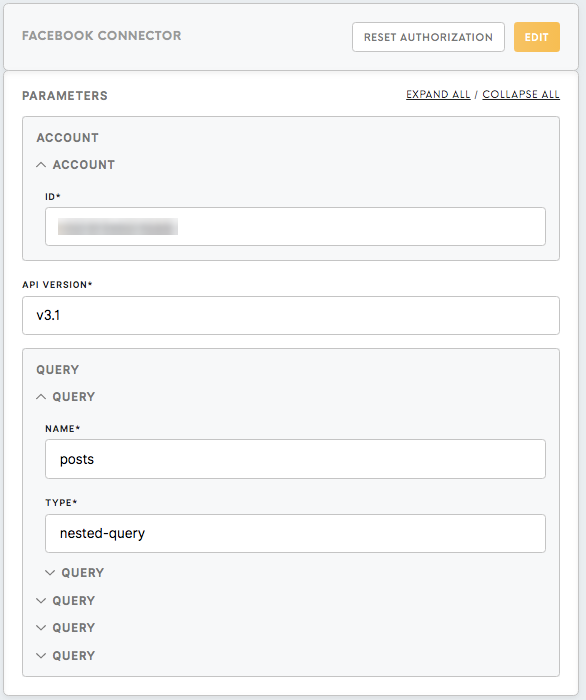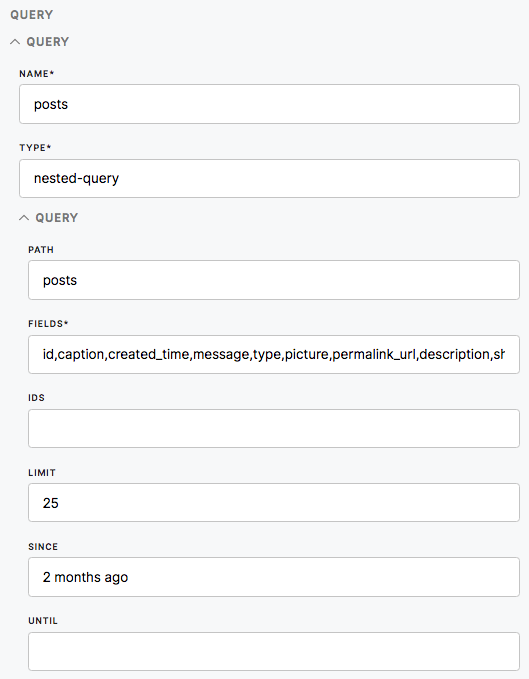Connector Facebook
The Facebook Connector allows you to connect to a Facebook business account and get data out the Facebook platform. It is based on the Facebook Graph API.
Requirements
To set up the Facebook connector, you will need admin/ editor access to the business account you want to obtain data from.
UsefulLearn Links:more: Graph API Explorer
Data In/Data Out
| Data In | N/A |
| Data Out | CSV files in the out/tables folder. |
Learn more: about the folder structure please go to this article.
Parameters
|
Account/ ID (required) |
The ID of the business account you want to download data from. It is possible to add more than one account.
|
| API |
API version you prefer to use. Warning: Please update the API version to the newest available, otherwise, the component will return an error.
|
| Name (required) |
The chosen name of the query.
For the name of the query that differs from the
For the name of the query same as the |
|
Type (required)
|
In the Facebook Graph API every endpoint represents a node in a graph. An example of a node could be:
In the Facebook connector, only the nested-query type is supported. Nested query allows extracting the whole subtree of the node connected to the chosen endpoint. For example, the call |
| Path (optional) |
Typically it is endpoint feed. The absolute URL is like
Remember: It can be an empty string if we want to start extracting from the "root" node that is the page itself.
|
| Fields (required) | Fields parameter of the graph API nested-query. |
|
IDS (optional)
|
A comma-separated list of IDs (typically page-ids) will be prepended with the path. It is also a parameter of the Graph API.
Remember: If empty, then all IDs from the accounts object will be used. |
| Limit (optional) |
The size of one response. The default value is 25, maximum 100.
Remember: Useful when Facebook API returns an error that the request is "too big" - in such case use a smaller limit.
This parameter also affects the total number of requests made to Facebook API. |
|
Since (optional)
|
Relates to the created_time of path parameter i.e., if the path is "posts" then it takes all posts with created_time since the specified date in since parameter. If the path is empty then it does not have any effect. Can be specified relatively, e.g. 10 days ago.
|
| Until (optional) | Same as since above but specifies a date until data with created_time date. |


